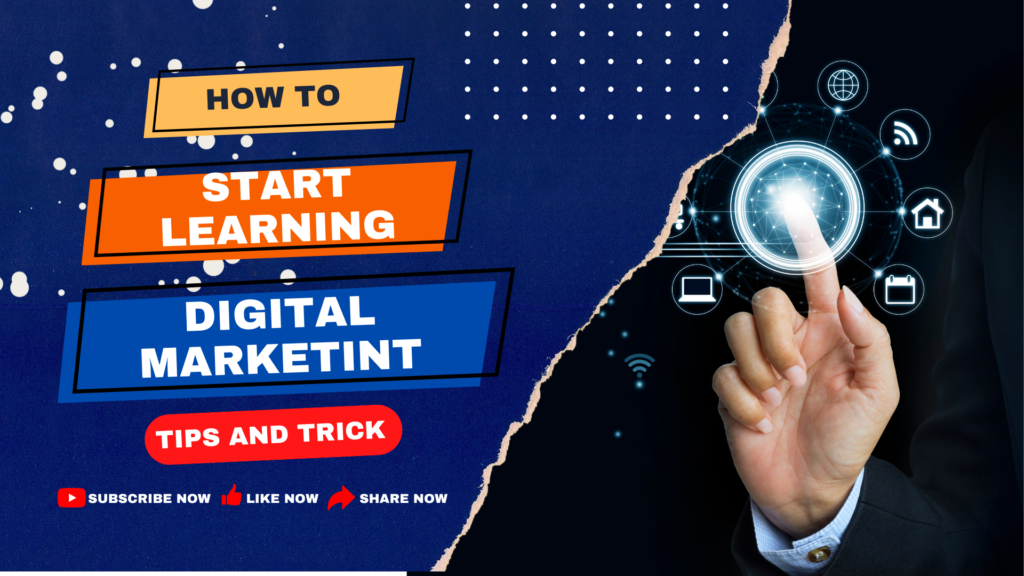Strategies and Tips for Success

Digital marketing has revolutionized the way businesses connect with their audiences. From social media to search engines, the digital landscape offers a plethora of opportunities to reach and engage customers. Whether you’re a seasoned marketer or just starting out, understanding the different facets of digital marketing is crucial for success. This comprehensive guide will explore various types of digital marketing and provide strategies and tips to maximize your efforts.
🚀 I am #Digital #Marketing Expert If you want Maximize your brand's visibility , impact through🎯🎯(#SMM #SEO,#Google #Ads) , contact with me pic.twitter.com/pjZXz6QoNO
— Md Abu Taher Mazumdar (@ATMazumderr) May 15, 2024
1. Search Engine Optimization (SEO)
SEO is the process of optimizing your website to rank higher in search engine results pages (SERPs). Higher rankings increase your website’s visibility and drive organic traffic.
Key Strategies:
- Keyword Research: Identify and target relevant keywords that your audience is searching for.
- On-Page SEO: Optimize title tags, meta descriptions, headers, and content with targeted keywords.
- Technical SEO: Improve site speed, mobile-friendliness, and ensure your site is crawlable by search engines.
- Link Building: Acquire high-quality backlinks from reputable sites to boost your site’s authority.
Tips:
- Use tools like Google Keyword Planner, Ahrefs, and SEMrush for keyword research.
- Regularly update your content to keep it fresh and relevant.
- Focus on creating high-quality, informative, and engaging content.
2. Content Marketing
Content marketing involves creating and distributing valuable content to attract and engage your target audience. This can include blog posts, videos, infographics, podcasts, and more.
Key Strategies:
- Content Planning: Develop a content calendar to ensure consistent and strategic content creation.
- Audience Research: Understand your audience’s needs and preferences to create relevant content.
- SEO Integration: Incorporate SEO best practices to ensure your content is discoverable.
Tips:
- Use storytelling to make your content more engaging and relatable.
- Repurpose content across different formats and platforms to reach a wider audience.
- Measure content performance using analytics tools to refine your strategy.
3. Social Media Marketing
Social media marketing leverages platforms like Facebook, Instagram, Twitter, LinkedIn, and TikTok to promote your brand and engage with your audience.
Key Strategies:
- Platform Selection: Choose the platforms that are most relevant to your target audience.
- Content Strategy: Create a mix of content types (posts, stories, videos) to keep your audience engaged.
- Community Engagement: Respond to comments, messages, and participate in conversations to build relationships.
Tips:
- Use social media analytics to track performance and adjust your strategy.
- Run social media ads to boost reach and target specific demographics.
- Collaborate with influencers to expand your reach and credibility.
4. Pay-Per-Click Advertising (PPC)
PPC advertising involves paying for ads that appear on search engines, social media, and other websites. You only pay when someone clicks on your ad.
Key Strategies:
- Keyword Bidding: Bid on relevant keywords to ensure your ads appear in search results.
- Ad Copy Optimization: Write compelling ad copy that entices users to click.
- Landing Page Optimization: Ensure your landing pages are relevant and optimized for conversions.
Tips:
- Use A/B testing to experiment with different ad copy and landing page designs.
- Monitor your ad performance and adjust your bids and targeting as needed.
- Set a clear budget and track ROI to ensure your campaigns are cost-effective.
<blockquote class="twitter-tweet"><p lang="en" dir="ltr">I am 👩💻Digital Marketing Expert🚀 If you want to Maximize your brand's visibility and impact through our strategic 🎯 📢marketing contact with me<a href="https://twitter.com/hashtag/onlinemarketing?src=hash&ref_src=twsrc%5Etfw">#onlinemarketing</a> <a href="https://twitter.com/hashtag/businesstips?src=hash&ref_src=twsrc%5Etfw">#businesstips</a> <a href="https://twitter.com/hashtag/digitalmarketing?src=hash&ref_src=twsrc%5Etfw">#digitalmarketing</a> <a href="https://t.co/MAanvDAui2">pic.twitter.com/MAanvDAui2</a></p>— Md Abu Taher Mazumdar (@ATMazumderr) <a href="https://twitter.com/ATMazumderr/status/1789495146360541460?ref_src=twsrc%5Etfw">May 12, 2024</a></blockquote> <script async src="https://platform.twitter.com/widgets.js" charset="utf-8"></script>5. Email Marketing
Email marketing involves sending targeted emails to your audience to nurture leads, build relationships, and drive conversions.
Key Strategies:
- Segmentation: Divide your email list into segments based on demographics, behavior, or interests.
- Personalization: Use personalized content and subject lines to increase engagement.
- Automation: Set up automated email sequences to nurture leads and follow up with customers.
Tips:
- Test different email designs, copy, and CTAs to optimize performance.
- Use email marketing tools like Mailchimp, Constant Contact, or HubSpot.
- Ensure your emails are mobile-friendly and have a clear, concise message.
6. Influencer Marketing
Influencer marketing leverages influencers to promote your brand to their followers. This can help you reach new audiences and build credibility.
Key Strategies:
- Influencer Research: Identify influencers who align with your brand and have an engaged following.
- Collaboration: Develop mutually beneficial partnerships with influencers.
- Content Guidelines: Provide clear guidelines to ensure the content aligns with your brand’s message.
Tips:
- Track the performance of influencer campaigns using specific metrics like engagement and conversions.
- Negotiate fair compensation and clearly define expectations in contracts.
- Build long-term relationships with influencers for ongoing collaboration.
7. Affiliate Marketing
Affiliate marketing involves partnering with affiliates who promote your products or services in exchange for a commission on sales.
Key Strategies:
- Affiliate Recruitment: Identify and recruit affiliates who have an audience that matches your target market.
- Commission Structure: Offer competitive commissions to incentivize affiliates.
- Performance Tracking: Use affiliate marketing platforms to track sales and manage payouts.
Tips:
- Provide affiliates with high-quality marketing materials and support.
- Monitor affiliate performance and optimize your program based on data.
- Foster strong relationships with your affiliates to encourage loyalty and performance.
Conclusion:
Digital marketing encompasses a wide range of strategies and techniques, each with its own unique benefits and challenges. By understanding and implementing these strategies, you can create a comprehensive digital marketing plan that drives traffic, engages your audience, and boosts conversions. Stay updated with the latest trends, continuously test and refine your approaches, and you’ll be well on your way to digital marketing success. Happy marketing!
Simon Sinek Quote
“People don’t buy what you do, they buy why you do it.”
